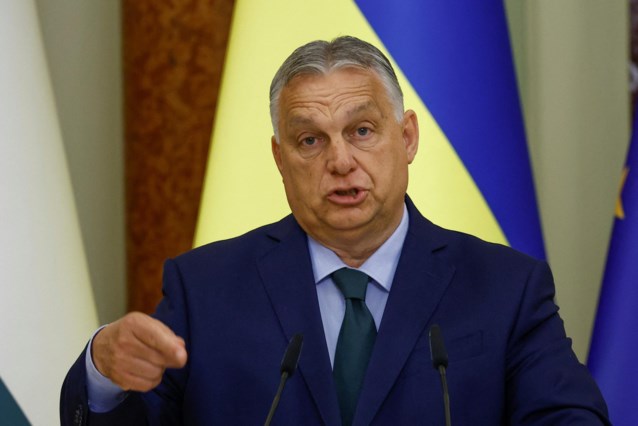Russian President Vladimir Putin is scheduled to meet with Hungarian Prime Minister Viktor Orban in Moscow on Friday. This comes after Orban’s recent visit to Kiev, Ukraine, where he called for a ceasefire without demanding that Russian troops withdraw from Ukrainian territory.
Orban’s trip to Moscow has raised concerns among some, as it follows his visit to Ukraine and could jeopardize his relationship with the Kremlin. The timing of Orban’s visit to Moscow is notable, especially considering the ongoing conflict between Russia and Ukraine. Some EU diplomats have criticized Orban for not consulting with the EU before arranging the meeting with Putin.
Outgoing President of the European Council, Charles Michel, has emphasized that the EU’s position is in support of Ukraine and against Russian aggression. Polish Prime Minister Donald Tusk has also expressed concern about Orban’s visit to Moscow. In response to criticism, Orban defended his actions on Facebook, stating that Hungary is taking steps towards peace during its EU presidency.
Despite these concerns, Hungary’s perceived alignment with Russia within the EU has led many to view Orban’s visit as controversial. During his visit to Kiev, he was seen as sympathetic towards Russia’s position in the conflict and did not push for a stronger stance against Moscow. The outcome of Orban’s meeting with Putin could have implications for EU-Russia relations and Hungary’s position within the EU.
This is not the first meeting between Orban and Putin, as they have previously discussed Chinese investments at a forum in Beijing. However, this time their meeting takes place amid tensions between Russia and Ukraine and raises questions about Hungary’s stance on the conflict.
Overall, Hungary’s actions during its EU presidency have been seen as controversial due to its perceived alignment with Russia within the EU. While some may view this as a step towards peace, others fear it could lead to further escalation of tensions between Russia and Ukraine or undermine Europe’s unity in dealing with this crisis.
As Europe continues to grapple with this conflict and its implications for its relations with Russia
